




By Katie Audsley | Hartlaw LLP
Monday 6th January has become known as ‘Divorce Day’ the busiest day in the life of a family lawyer, as people use the New Year to make decisions about their relationships and marriage and take steps that they may, until then, have been putting off until after Christmas. The pressure to turn your life around in January with a new exercise regime, hydration, meditation, nutrition and don’t forget cold showers! may already be enough, this looming day should not become another pressure to add to the stress of the New Year, it has to be the right time for you and your family.
The important thing is finding a clear pathway from your separation to your newly separated lives and, if you have children, devising the means to be able to parent your children effectively when not living together.
A good lawyer should break things down for you into manageable steps and work with you to come up with a plan that takes some of that pressure off and can show you what the next step looks like for your family, to avoid overwhelm. Supporting parties towards a solution that will work for each and both of them and, if they are parents, for their children is so important. Together with having the knowledge of what legal procedures are in play and ensuring that you can reach a binding outcome of whatever kind you need.
Although they are specialised in matters of law and procedure, many family lawyers have also developed their knowledge and skills in respect of general understanding the emotional and psychological effects of family separation and the effects for children, abuse in the home, family finances (particularly where it relates to the expectation of the Court and the boundaries

of applicable law) and may also help clients in considering the practical and day to day issues that need managing as they work towards an outcome.
Importantly a good family lawyer will know, and be able to signpost for you, or bring in – other trusted professionals who will support the process and provide a comprehensive wrap around service. This really helps if you are struggling to know where to start.

You may be concerned about the element of cost, but the fact is, co-ordinating and designing the services that are needed can often result in greater overall efficiency, less delay and less cost. Also, quite simply, it is worth checking – for your own present and (really importantly) future peace of mind.
The key message from ‘Divorce Day’ is you are not alone.
If you require any advice or assistance in relation to any aspect of family law, please do not hesitate to contact us. Dianne, Kate or Katie in our family team can provide specialist advice and offer a free initial consultation.
Please do contact a member of our family team by calling 01937 547000 or by emailing info@hartlaw.co.uk



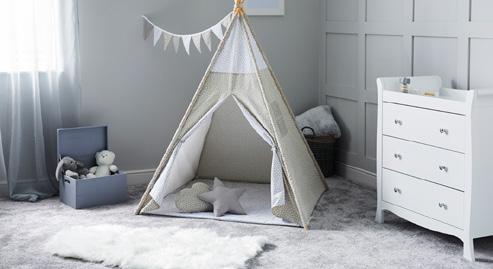





E:
T: 07734 690020

@FamiliesNYMag


@FamiliesNYMag
@familiesnorthyorkshiremagazine
Happy New Year from all of us here at Families! We hope 2025 is a great year for you.
Start it off with some anticipatory excitement and plan some fun for the summer with our family festivals guide. Then, settle down, read our interview with Aiden, age 8 and inspire your kids to follow in his footsteps for a good cause! In preparation, you can keep them physically active with our novel suggestions for indoor, home-based, NON-SCREEN activities.
Do you have a young baby or are you expecting one? If so, you’ll be interested to read our article on the importance of gut-health – find out all about your baby’s biome. And get up to date on the new childcare offering that’s being rolled out and find out why you would be advised not to delay in looking for a nursery place for your child in September.
Finally, in this issue, we have two Littlest Pet Shop Bundles, worth £100 each and a Teepee Playtime Bundle to giveaway! Apply inside and also ensure you receive a digital version of every issue of our magazine and more giveaways and useful information in our newsletter.



where we help your child be the best the y can be with the g ifts that the y have



By Bradley Busch
Want to raise a high-flying child? Here’s how to encourage the good learning habits that ‘smart kids’ demonstrate that will set your child up for life.
Believe they can improve. Kids can believe they have a fixed amount of intelligence, which can lead to a defeatist attitude towards schoolwork. They might say: ‘I know I can’t do this, so there’s no point trying.’ These children often give up on challenging tasks and reject feedback. Other children believe they can improve. They might say: ‘I find maths difficult so I’m going to try even harder.’ These kids have a growth mindset, believing they can improve by working hard and learning from their mistakes. This makes them better learners.
Try this: Praise your child’s effort, not achievement. Try: ‘I’m pleased with how hard you worked on your writing. What do you think would make it even better?’
Don’t compare. Smart children are more likely to focus on their own achievements and not compare their performance to others. This self-referencing leads to greater motivation and confidence. It’s the difference between saying: ‘I know I’m good at ten-pin bowling because I always win’ and ‘I know I’m good at ten-pin bowling because I used to get 90 points and now I get 110.’
Try this: ‘Your handwriting is really improving. Now try focussing on making your letters all the same size.’ Don’t say: ‘Why can’t you write as neatly as your sister?’
Ask for help. In late primary school, children (particularly boys) can become reluctant to ask for help because they think it’s a sign of weakness. But one of the hallmarks of a resilient learner
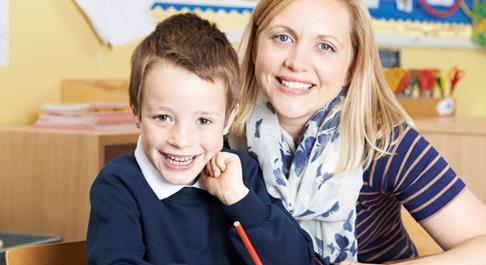
If children understand why they’re doing a task or how it will help, they are more engaged and make more effort.
Try this: A good teacher prefaces a task by explaining why their pupils are doing it. For example, ‘this will help you understand what we’ll cover in science tomorrow.’
Help your child understand the purpose of their homework and why it’s been set: is it a mock paper to help them do better in their SATs, for instance?
Smart kids recognise that procrastination isn’t helpful. Children often procrastinate because they don’t know where to start, the work looks too difficult or they don’t think they can finish it in one go. But once they start, they often realise it’s not as daunting as they thought.
Try this: Set a timer for ten minutes. Encourage your child to start the task, with the promise that they can stop when the bell sounds. Often, they’ll want to carry on once started, as the brain doesn’t like leaving things unfinished.

is that they ask for assistance if a task is proving difficult.
Try this: Explain to your child that asking for help is the sign of a mature learner. If they’re having trouble with homework, encourage them to seek an explanation from the teacher.
Learn from feedback. Can your child absorb the teacher’s comments and guidance for improvement? Many students see feedback as criticism and are less likely to take it on board.
Try this: Rather than your child asking themselves or you ‘Is this okay?’ – a question that could lead them to accepting work that doesn’t live up to their ability – suggest that your child asks: ‘How can I improve this?’
Children whose parents have high expectations for them do better at school.
Bradley Busch is a Chartered Psychologist) and author of Release your inner drive: Everything you need to know about how to get good at stuff, available from www.bookshop.org

Being sleep-deprived has a noticeable impact on children’s academic achievement. Sleep is closely linked to children’s learning, memory and emotional control and children who regularly get a good night’s sleep tend to raise their results by one grade per subject in exams.
Try this: Enforce a screentime ban an hour before bedtime and ensure tablets, phone and laptops are not in your child’s room overnight. Using screens before bed could result in your child losing an hour of sleep per night.
Contrary to appearances, smart kids are not the ones who put hours into every homework task and stop going to their after-school clubs to revise for exams. Instead, they balance their workload with extra-curricular activities, seeing friends or just relaxing at home. Physical activity and social contact are linked to mental and physical wellbeing, which has a knock-on effect on their schoolwork.
Try this: Make time to go to the park for a family walk or run. Leading by example is important if your child is going to achieve a good work/life balance.

The good news is that Ofsted and the Independent Schools Inspectorate (ISI) now assess personal development, which includes mental health in schools. Areas such as resilience, confidence, independence and how to keep mentally healthy are all covered in their assessments. As part of pastoral care, all schools are now also required to provide a mental health and relationships curriculum.
A school judged ‘Outstanding’ by Ofsted in the area of personal development will provide high quality pastoral support alongside a wide, rich set of experiences which support pupils to be confident, resilient and independent. It will offer exceptional quality opportunities for children to develop their talents and interests and strongly encourage take up of these, especially amongst disadvantaged pupils.
Schools that are ‘Outstanding’ in the area of personal development are expected to promote equality and diversion and teach pupils how to be responsible, active citizens who contribute positively to society and demonstrate their own ‘outstanding’ personal development.
However, do look beyond Ofsted’s current one-word judgements and check when they last visited the schools that you are considering too. More than ninety percent of mainstream state schools are summed up as ‘Good’ or ‘Outstanding’ and yet, clearly, there is plenty to distinguish these schools from each other. What’s more, a lot can change in between Ofsted visits.
For parents with children in the private sector, the Independent School Inspectorate (ISI) benchmarks are similar to Ofsted. The ISI is a government approved body that inspects and provides objective evaluation of independent schools. However, ISI reports are more nuanced than Ofsted reports and don’t give single word summative judgements for each area inspected.
Their recently revised framework has pupil wellbeing running through it, resulting in TES magazine stating:
‘The upshot of [the new framework] is that personal, social, health and economic (PSHE) education is now probably the single most important subject that schools teach when it comes to inspection outcomes.’
Amanda Childs, Chair of the Independent Association of Prep Schools (IAPS) Pastoral and Wellbeing Committee, added:
‘Pastoral care is what the independent sector is renowned for. It is about a child knowing they are completely valued and cared for; allowing them to feel safe in order to discover themselves, what they are capable of and developing a positive sense of self.’
By Melanie Sanderson

News reports last year claimed there is a child with a suspected mental health concern in every primary school classroom in the country. Figures released by NHS England showed more than 165,000 children ages 6 to 10 were in contact with NHS mental health services at the end of February 2024, while the number of primary-age children in England either waiting or being treated for mental health problems, increased by over a quarter in less than a year.
The picture has never been starker and schools have a key part to play both in terms of prevention and providing expert support. The past twenty years has seen schools evolve from places where it was ‘brain first’ to spaces where body and mind are recognised as needing equal developmental attention.
Before anything else, a school should be a centre for care. Pastoral care encompasses a wide range of initiatives and approaches. A good primary school will embed pastoral care into all it does within the culture of the school: how it teaches, how it protects, how it listens and learns. A pastorally strong school is in the best position to thrive academically.
When they experience anxiety, children can’t access learning, making it crucial that all schools have a robust pastoral care system to support pupils’ development. Simple measures like buddy benches, mindfulness lessons and worry boxes or mood charts are now widely offered and can make a big difference. Animals are good too. Some schools have a therapy dog and even class pets like goldfish or hamsters can help children open up.
A common thread running through primary schools with a strong pastoral offering seems to be plentiful opportunities for fresh air, physical exercise and being in nature. Even in some of the most space-pressed inner-city schools, children are cultivating a mini allotment or growing sunflowers in the playground. Similarly, Forest Schools offering regular outdoor hands-on learning sessions in natural environments, are building young children’s confidence and self-esteem.
Extra-curricular activities also play a role, fostering social engagement, personal development and a sense of belonging among pupils. An inclusive sporting ethos is often front and centre in schools with good pastoral care, particularly in the co-curricular timetable. However, do look for schools that offer a wide selection of clubs which appeal to all kinds of interests beyond sport too.
Amanda Childs, Chair of the IAPS adds: ‘Pastoral care is more than formal PSHE lessons. It incorporates every interaction an individual has in school; from the moment they arrive until they leave. It is about a genuine, positive culture, having excellent role
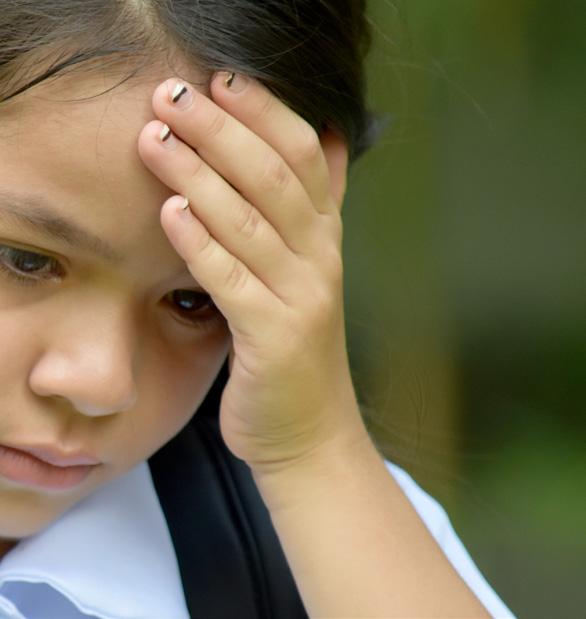
models and high expectations, balanced with a kind and realistic view of the support any individual child needs to succeed - and that will be different for every single child.’
Central to a robust pastoral approach is staff fully trained in mental health first aid and safeguarding. This also includes the non-teaching staff that children often seek out to talk to such as school nurses, lunchtime and office staff. Sometimes the support offered will be a listening ear, at other times, children might require signposting to additional support. The more mentally healthy schools usually have a school nurse, mental health support teams and even dedicated counselling.
For Dean Taylor, Associate Headteacher at Seven Kings School, a co-ed state school for ages 4 to 18 in east London, it’s the relationship between staff and pupils that holds the key to positive mental health in schools. Dean says: ‘The ethos is more important than anything and you can walk around this school and see that it’s inclusive, friendly, safe and with clear and consistent boundaries’.
Seven Kings pays particular attention to pressure points and makes sure every child has a trusted adult. There’s a joined-up approach with the SENCO too, in the knowledge that youngsters with conditions such as ADHD and autism can be particularly at risk of mental health problems. ‘The most vulnerable pupils have a one-page profile that’s shared with all staff’ adds Dean.
Finally, successful pastoral care involves the school, child and parents. Starting school is a huge milestone for the whole family and a carefully managed transition makes for a smoother pastoral pathway right from the start. Likewise, primary schools with good pastoral provision work closely with secondary schools in Year 6 to ensure a seamless transition to the next stage of education.
Good schools take the time to get to really know a child personally; what they like or don’t like and what they are interested in. Schools where pastoral care is foregrounded will extend their offerings to parents too. They might offer useful parent talks, for instance on safe use of technology and share wellbeing resources. Crucially, these schools will have the confidence to collaborate with parents in robust and trusting ways. If you think your child might need help, your first port of call should be your child’s form teacher or tutor who can elevate your concerns to the appropriate staff member.
Melanie Sanderson is Managing Editor of The Good Schools Guide (www.goodschoolsguide.co.uk), which reviews the key components, pastoral care being one, of hundreds of schools per year, providing parents with in-depth, unbiased insights.

The Chancellor has announced that up to seven hundred and fifty state-funded primary schools will start offering free breakfast clubs from April this year.
This initiative will run during the summer term (April-July) as a pilot phase to prepare for a national rollout.
The Department for Education will work with the schools selected as part of the pilot to understand how breakfast clubs can be delivered to meet the needs of schools, parents and pupils when the programme is rolled out nationally.
The Government claims breakfast clubs will help reduce the number of students starting the school day hungry and ensure children come to school ready to learn. It will also support the government’s aim to tackle child poverty by addressing rising food insecurity among children.
More info: www.gov.uk/government/news

Chapter House Prep School of Queen Ethelburga’s Collegiate (QE) were honoured to win the 2024 Northern Design Award for COMM Landscaping for its exceptional new Abbey Gardens where day students and boarders grow fruits, vegetables and herbs all year round that are then cooked onsite by QE’s esteemed catering team. This award follows another award for Chapter House’s Abbey Chambers boarding house which also won the BSA Best Renovation or Refurbishment Award 2024.
Over 2024, QE have renovated many areas onsite including the new mathematics block and the new gymnasium which CBE Kevin Sinfield opened in November with a student Q&A. They also built a brand new cricket pavilion and causal basketball court area as part of their commitment to state-of-the-art facilities. To see the campus for yourself, visit www.qe.org/open-day.
All listings are correct at the time of publication. Please check with the venues before you visit incase anything has changed
RSPB Big Garden Birdwatch
Your own garden!
Join the RSPB for the Big Garden Bird Watch this year. Share your findings and help monitor the birds of Britain. Find out more information and how to register for free online.

York Ice Trail
York City Centre
Wander through the city, uncover the theme of “Origins,” with stunning ice sculptures inspired by legends, myths, and York’s rich history. Watch as live ice carving brings these stories to life, and enjoy interactive experiences that will delight visitors of all ages. Plus, take the
Snowdrops in the Woodland Burton Agnes
Every February, thousands of hardy snowdrops push through the cold winter ground to create a magnificent ‘white carpet’ across the woodland floor here at Burton Agnes. Walking peacefully among these makes a truly memorable day out at the end of the long winter.
Grand Opera House, York
George wishes he wasn’t the scruffiest giant in town. So when he sees a new shop selling giant-sized clothes, he decides it’s time for a new look: smart trousers, smart shirt, stripy tie, shiny shoes. Now he’s the smartest giant in town . . . until he bumps into some animals who desperately need his help –

Snowdrop Sundays
Goldsborough Hall
Enjoy a wander and see the spectacular display of snowdrops in Goldsborough Hall’s 12acre grounds, available for viewing on the 9th & 23rd February 2024.
Grand Opera House, York
This is the children’s pop concert with a big difference. The four fabulous Fairy tale Princesses are back, and this time they are on their first World Tour! Join them on this epic adventure, featuring a soundtrack of top pop hits from artists such as Taylor Swift. Meghan Trainor and Miley Cyrus, Dua Lipa and Lizzo, plus a few of the best songs from all your favourite Films and Musicals. Join the fun!
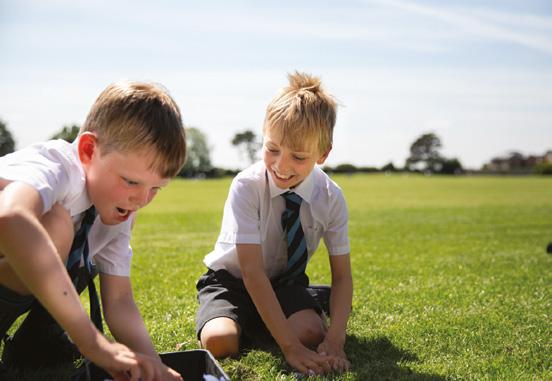



Dark Skies Festival Various Locations
A great opportunity to explore the beauty of the night sky and learn more about the universe we live in. With its stunning landscapes and clear skies, the Yorkshire Dales is the perfect place to celebrate dark skies and appreciate the wonders of the universe. There are also plenty of family friendly fun such as rocket making, nocturnal wildlife talks, planet trails and dark skies crafts.

The Detective Dog Harrogate Theatre
Whether it’s finding a lost shoe or discovering who did a poo on the new gravel path, Nell’s ever-sniffing nose is always hard at work. So when the books at the school have disappeared one morning, Detective Dog Nell is ready to sniff out the culprit!

Put Thursday 6 March 2025 in your diary for World Book Day 2025 and start planning your child’s costume.
Marked in over one hundred countries, children and schools get involved by dressing up as their favourite book characters and reading together to celebrate authors, illustrators and books. Each year World Book Day releases a brand-new line-up of £1 books and issues tokens that children can use to choose one of the books for free.
This year’s books include short stories from family favourites Bluey and Paddington Bear for beginning and early reading abilities, a search-and-find story from Julia Donaldson and Axel Scheffler and a selection of poems from the 2022-2024 Children’s Laureate, Joseph Coelho. For more fluent and independent readers, Benjamin Dean captivates young adults with a standalone thriller, while Tom Palmer scores with The Soccer Diaries: Rocky Takes the Lead. More info: www.worldbookday.com
Harrogate Indoor Funfair
Great Yorkshire Showground
With jaw-dropping rides and amazing inflatables for all ages, Harrogate Indoor Funfair offers all the fun of the fair in an indoor, climatecontrolled and family-friendly environment.

JORVIK Viking Festival
JORVIK Viking Centre
Put your whiskers to the test in our Best Beard Competition or explore exquisite Viking goods at our 10th Century Traders stalls. The Vikings will also return to muster their fearsome armies with the March to Coppergate through the city centre. Plus walking tours, kids crafting, expert talks and much more… https://jorvikvikingfestival. co.uk

Shrek the Musical Joseph Rowntree Theatre, York
Dive into a world where love knows no boundaries, friendships are forged in the most unexpected places, and laughter is guaranteed! With catchy songs, quirky characters and a story that turns fairytales upside down, this show is a roaring good time for all ages. Join Shrek, Fiona and Donkey on their hilarious journey to find true happiness.
The Frog and the Princess Harrogate Theatre
What if wishes were granted? What if magic was real?
When a Storyteller appears everyone is enchanted… Beasts and breadcrumbs, wolves and witches, but all Froggy really wants is to hear a story starring someone like him. Head into the woods with Hansel & Gretel, help little elves make beautiful shoes, meet the princess who’s champion of hide-and-seek, and see if Froggy finally gets his wish!
Aysgarth Falls
Aysgarth, Leyburn
Yorkshire Dales National Park - DL8 3TH
Beningbrough Hall
Beningbrough, York National Trust - YO30 1DD
Bolton Abbey Skipton BD23 6EX
Brimham Rocks
Harrogate National Trust - HG3 4DW
Castle Howard York YO60 7DA
Dalby Forest
Thornton-Le-Dale, Pickering YO18 7LT
Fountains Abbey Ripon National Trust - HG4 3DY
Lotherton Hall
Aberford, Leeds LS25 3EB
Yorkshire Sculpture Park West Bretton, Wakefield WF4 4LG

Tell us a bit about yourself Aiden
I’m Aiden and I’m 8 - I’ll be 9 on Christmas Day. I live in Somerset with my mum and dad, our rescue dog Nevis and my pet snake Cornelius. I do Swimming, where I’m at Stage 7 and Taekwondo where I recently got my Yellow Belt. I also do Cubs where I get to earn badges, play games and be outdoors. I enjoy listening, dancing and singing to music. I like drawing, I love LEGO® and I play Pokémon Go.
How did you first hear about The Outdoor Guide Foundation?
At the very first Outdoor Expo when I was 6, I met Gemma Hunt on their stand and she told us about the plan to give every primary school sets of Waterproofs and Wellies so that all children could go outside on rainy days without getting wet and cold or having to stay inside.
What inspired you to help The Outdoor Guide Foundation?
I wanted to help lots of other children go outside more because it’s better than indoors, even when it’s raining! My parents have taken me camping and hiking a lot since I was really small and got me really good things to wear like proper waterproofs, hiking boots and rucksacks. I’m really lucky that I get to go everywhere like up mountains and I know other children may not get to go to such adventurous places but I really want everyone to be able to get fresh air and stay warm and dry.
Tell us what you’ve been doing to help.
The first thing was a big hike on Dartmoor when I was 6 and a half. I wanted to do it in one day (but mum and dad carried a tent just in case). I did all 16 miles in ten hours! We started at 7am and did lots of up and down on the moor (700 metres of ascent) - my feet hurt at the end. I raised

£568 - enough money to get two sets of Waterproofs and Wellies and even had my fundraising doubled afterwards which was amazing!
Then I found out about the Fan Dance, the special forces training hike in the Brecon Beacons. They do it in four hours, carrying heavy kit, so I carried all mine and I did the 22.7 kilometres in under eight hours and this had more than 1000 metres of up – it included Pen Y Fan!
It was harder than I thought it would be, I liked the up bits but not the boring flat bit in the middle. I raised £743, enough money AGAIN for two whole sets Waterproofs and Wellies – and a bit. I think the Foundation will round it up to three though! I can’t wait to find out where they go to.
Tell us about being an Outdoor Guide Foundation Youth Ambassador
It means I can represent the Foundation as a young person who is supporting
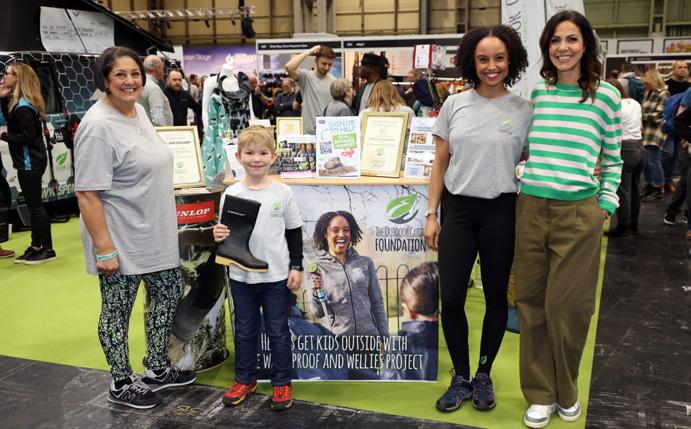
them and show other children that they don’t have to be adults to help too. I spent a weekend helping the Foundation and Challenge the Wild who were helping children from families that don’t get outdoors much. And I want to keep helping even more children get Waterproofs and Wellies. I like meeting people and I get to feel proud. I even got a t-shirt!
What do you like about being outdoors?
Being outdoors hiking, walking and camping makes me feel peaceful. I love nature and being in the mountains, woods and on the coast, like when we did some of the South West Coastal Path this summer. It’s good exercise and I stay healthy.
How do mum and dad support you?
They cheer me on, keeping me going when I feel I don’t want to and making sure I have some sweets on hikes for when I get tired. They carry extra kit too and share my fundraising so more people know about it and I can raise more money.
The Outdoor Guide Foundation is looking for more children to become Ambassadors. What would you say to others about getting involved?
That it’s a really good thing to aim for and picking something that’s a bit of a challenge to you but is also fun can give you ideas on how to help and raise money. Start with something small and keep moving and remember that being outdoors makes you feel good – even if it’s raining (you can have hot chocolate with marshmallows at the end)!
If your child is interested in becoming an Outdoor Guide Foundation Youth Ambassador, find out more at www.theoutdoorguidefoundation.org/ ambassadors


If your kids are wanting to get active, desperate for drama, eager to meet new friends or learn a new skill, then look no further than our guide to local clubs & classes to keep them busy! When you call, please don’t forget to say you saw them in Families North Yorkshire Magazine.
2PRU Gymnastics Club

2PRU Gymnastics Club is an inclusive community where fun, family and a sense of belonging thrive. Whether you are a beginner or an experienced gymnast, their expert guidance and positive attitude will help you succeed.
2prugymnasticsclub.co.uk
ARTventurers
Award winning, colourful, creative (often messy) art classes for babies, toddlers and children.
artventurers.co.uk
Baby Band
Interactive music session for children who are independently sitting to interactive music session for children who are independently sitting to 3 years old.
babyband.co.uk
Baby swimmers
Classes for babies and toddlers from 6 weeks old. Your little ones will have a great workout, singing and playing through our structured awards programme to build water confidence and progress to a confident swimmer.
info@babyswimmers.co.uk
Danceology
Offering high quality dance training in a friendly and welcoming environment. Classes available from age 2 years.
www.danceology.co.uk
Kidslingo
Inspiring young children, from birth to 12 years, to love languages (French & Spanish) from the very start of their language learning journeys
www.kidslingo.co.uk
The Little Gym
For every stage of your child’s development from 4 months to 12 years.
www.thelittlegym.co.uk
The Music Room, Selby
Accessible private music tuition for all ages and levels One-to-one and small group lessons available.
themusicroomsselby.co.uk
Perfect Pitch Stars

Classes include singing and drama in a fun and exciting environment in Church Fenton. Performance work is showcased each term, along with a full musical once a year, acting exams, competitions and performances at local events are part of our curriculum. In January we are also excited to be starting Screen Acting Classes working towards exams in the area.
perfectpitchstars.com
Phonics with Robot Reg
high-energy classes which open a world of Literacy to children and teach early phonics skills. Classes are available for children aged 3 months – 6 years.
www.robotreg.co.uk
Razzamataz
York based classes in Performing Arts - singing, dancing & drama. Catering for all ages from 2 - 18 years
www.york.razzamataz.co.uk
Rhythm Time
Music & singing classes for babies, toddlers & preschoolers.
www.rhythmtime.net
Ruby Dance Studios
Inspiring, confidenceboosting & creative dance classes for children aged 2-11 years. Fun Ballet, Tap, Musical Theatre, Commercial & Acro classes with show and IDTA exam opportunities available! Based at Thorner Parish Centre, Bramham Village Hall and Tadcaster Methodist Church.
Book a 2 week trial at: rubydancestudios.co.uk or on 07912678792
Rugbytots
Dynamic weekly sessions that enable children aged 2 - 7 years to develop their social and physical skills in a fun, positive environment.
www.rugbytots.co.uk
Sunshine Sensory

A unique and enriching experience that engages all your little ones senses while promoting relaxation, enhancing well-being, and creating memorable moments. Visit the website to discover how you can begin your little one’s sensory journey today! sunshinesensory.co.uk
Swimmers Academy
Classes for beginners from 4 years old through to advanced levels for teens. Focus is on stroke technique, distances and lifesaving skills, following the STA Awards programme to Gold in both survival and swimming.
Please email info@babyswimmers.co.uk
Tumble tots
Gym classes for children from 6 months to 7 years.
www.tumbletots.com
YTR Youth Theatre
York Theatre Royal Youth theatre class for children aged 5+
www.yorktheatreroyal.co.uk/ be-part-of-it/children-andyoung-people
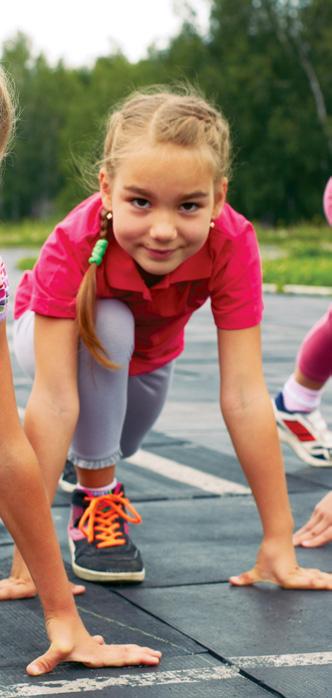
Building girls’ confidence with safe places
New research highlights that safe spaces can help boost primary school girls’ confidence, self-esteem and resilience when it comes to PE.
The study from Leeds Beckett University, centred around the M2 program—”Where Movement and Mindfulness Meet”—involved girls aged seven to eleven across five schools.
This innovative eight-session initiative combines running/ walking with mindfulness to strengthen a girl’s selfesteem and resilience. Girls have themed discussions, play games, do structured workouts and capture their experience through words and pictures in their own journal. They finish with a 5KM challenge.
Participants showed marked improvements in fitness, social interactions, and mental health, including resilience and pride.
Dr. Annette Stride, lead author of the study, noted, “Our research demonstrates the power of the M2 program. The girls’ newfound confidence manifests in their increased classroom participation, positive outlook on exams, and leadership roles.”.
More info: www.m2club.org.uk
By Lucy Upton
If you’re a new or expectant parent, you may have heard a lot about the importance of your baby’s microbiome. But what even IS it? And why is it important?
The microbiome encompasses the large but invisible community of microorganisms such as bacteria, fungi and more, that live in various body parts. The one receiving the most attention in recent years is the gut microbiome. Your baby’s gut microbiome affects everything from their digestion (which you might expect) to immune function and brain development.
The importance of the microbiome
During the early months and years, up until they reach age 3, babies develop a community of gut bacteria that will last a lifetime. Developing a well-balanced microbiome during these years not only supports short-term health but will also reduce the risk of conditions like food allergies, asthma, obesity and immune conditions later in life. Several factors influence how your baby’s microbiome develops, some of which you can control and others which you cannot.
Mode of delivery. Babies born vaginally are exposed to their mother’s vaginal microbiota, while caesarean-born infants are initially exposed to microbes from their mother’s skin and the hospital environment.
Feeding method. Breastmilk is ideal for growing a healthy gut garden, containing its own probiotics (food to fuel gut bacteria) and a whole breastmilk biome. Babies who are formula-fed are known to grow a different community of gut bacteria but increasingly, formula milks have added ingredients to try and mimic the components in breast milk that help good gut bacteria thrive.

Breast milk is a dynamic substance rich in various factors influencing your baby’s microbiome. Research suggests that breastfeeding lowers your baby’s risk of certain diseases and helps build a strong immune system. Below are just a handful of gut-loving components in breastmilk and how they help your baby’s gut garden grow and develop.
Breastmilk’s prebiotics. Prebiotics are fuel or ‘food’ for gut bacteria. Breastmilk is rich in a substance known as Human Milk Oligosaccharides (HMOs), a form of prebiotic. HMOs reach your baby’s gut undigested to encourage the growth of food bacteria and support immune function.
Breastmilk’s probiotics. Breastmilk contains a community of bacteria, sometimes called the breastmilk biome. These help to establish and maintain your baby’s balanced gut microbiome. Antibodies. Certain antibodies, especially Immunoglobulin A (IgA), help coat your baby’s gut and protect it from harmful pathogens.

When your baby starts solid foods, their gut microbiome undergoes a significant transformation as they experience a diverse range of new foods.
Environment. Exposure to pets, siblings and diverse environments can fuel the growth of your baby’s microbiome. A little dirt and outdoor play as your baby grows older are also excellent for their gut community.
Medications. Certain drugs are known to disrupt the balance of bacteria in your baby’s gut. Antibiotics are well-known culprits but other medications, including some anti-reflux medications, are also known to impact the gut microbiome. However, it’s important to remember that these medications can be essential for treating specific conditions and should always be used under the advice of a doctor.
Lucy Upton is founder of The Children’s Dietician (www.thechildrensdietician.co.uk) and expert speaker at The Baby Show (www.thebabyshow.co.uk) with Lidl GB, taking place 7-9 March at ExCeL London and 9-11 May at NEC Birmingham.

The introduction of food marks a significant shift in your baby’s gut microbiome. Suddenly, there is an influx of new options to feed the community of bacteria and certain foods are potent fuel - namely, those containing fibre. Whilst it’s essential to be mindful of overall fibre content in your baby’s diet, prioritising a varied weaning diet, including the foods below, will be a key step in nurturing a healthy microbiome.
Fruit. Offer a range of colours and types, such as pureed, mashed or soft finger food options like bananas, steamed apples, raspberries and ripe pear.
Vegetables. Offer a range of options, including green and root vegetables. Many work well as finger foods and/or pureed or mashed options.
Beans, legumes and lentils. These are easy to incorporate mashed or blended into meals or as options like hummus, which is excellent on toast or loaded onto roasted vegetables. Grains. Oats are perfect for porridge, milled in pancakes or sprinkled on top of muffins.
By Purnima Tanuku
Early education and childcare is very expensive, especially for our youngest children and as research has shown, many parents end up working just to pay for their child’s nursery. So why is UK childcare so expensive compared to childcare in similar countries? The reason is that the government contribution has been so low and until recently it was limited to children ages 3 and 4.
So, when the previous government’s plan to expand childcare support for working parents in England was announced last year, this was great news, not just for parents but also for children. Research shows that high quality early education and care supports their development, wellbeing and has an impact on their education all through their schooling.
What is the new childcare offering in UK childcare?
The childcare expansion is being delivered in stages, building on the thirty hours of funded childcare for children ages 3 and 4 which was already available. However, the offer is still only available to families where parents are working at least sixteen hours a week.
The roll out provides:
• fifteen hours funded childcare a week for children age 2 from April 2024
• fifteen funded hours for children ages 9+ months from September 2024
This will be increased to thirty hours funded childcare for all children under age 5 from September 2025.

It’s not ‘free’, it’s ‘government-funded’
The offer of ‘free’ childcare launched by the previous government has now been renamed by ministers as ‘government-funded’ childcare. Calling the funded hours free has misled parents and created difficult conversations when providers need to charge for meals and other items not included in the funding.
The Department for Education (DfE) announced late last year that it would be consulting with providers in the coming weeks on new guidance regarding charging parents for ‘extras’ such as meals and consumables. It’s important that the government works with providers to create guidance that is clear, fair to parents and sustainable for providers.
Although the government offers funded hours, the rates they pay for these have never covered the actual costs of delivering high quality early education and care. When we speak to providers, the vast majority say funding rates do not cover their staffing and other costs and when funding increases do not keep pace with inflation and staffing costs, that gap only widens.

Although government funded hours make a difference to family finances, this funded childcare still involves costs for parents. It is important to be aware of the following parameters:
The thirty and fifteen hours of government supported childcare is not ‘free.’ The government only pays for the actual childcare sessions, which does not include any meals, snacks, consumables or additional activities, so families can expect to see settings make charges for these.
The funded hours are only during term time. Most parents work all year round so providers may ‘stretch’ these hours across the year, reducing the hours per week.
Depending on the length of your sessions, you will need to pay for any additional hours you need at the nursery’s usual fee especially for early or later hours.
Purnima Tanuku OBE is Chief Executive of National Day Nurseries Association (NDNA) (www.nda.org.uk), a charity with a mission to see children and families thrive through access to high-quality early education and care.
Following years of underfunding and rising costs, hundreds of nurseries are closing and thousands of qualified practitioners and childminders are giving up the profession for better paid jobs.
The pressure is clearest in more deprived areas, where nurseries depend on government funded hours and less on parent fees, creating childcare deserts.
With the doubling of funded hours being offered to families, the DfE estimates that seventy thousand new places will be needed to satisfy demand by September 2025. To deliver these, providers will need an additional thirty five thousand staff.
As of last year, the statutory minimum staff to child ratios in England for children age 2 is now one adult to five children. Looking after five two-year-olds is stressful and many providers prefer to work with smaller groups.
Ahead of September, speak to your choice of childcare provider as early as possible to try to secure a place – especially if you live in an area of high demand e.g. city centres.
Compiled by Andrew Campbell
Discover the ultimate family-friendly festivals across the UK in 2025, where music, arts and outdoor adventures come alive for all ages. Discover unique experiences which will ensure memorable moments and endless fun for families in vibrant, engaging and often idyllic settings.

Teddy Rocks Charisworth Farm, Blandford Forum, Dorset 2-4 May
Winner of Best Family Festival in 2022, Teddy Rocks is an immersive three-day music event, with one hundred percent of profits supporting children’s cancer research. This multi-award-winning, independent festival hosts over one hundred acts from international acts to brand new performers. The festival offers activities for all ages, including fairground rides, comedy tent and axe-throwing, all in an intimate setting. www.teddyrocks.co.uk
Bearded Theory Catton Park, Derbyshire 21-25 May
Set in the heart of the Midlands, this festival features sensational live performances for adults across multiple stages. The award-winning children’s offering includes fun educational classes, a Toddler Tent with soft play, a pop-up library, poetry tent and creative workshops like puppet making. Kids can also enjoy a chill-out area, face painting, circus activities and a talent show. NEW: ‘Kids Rave On’ with club lighting and DJ performances. Evening highlights include LED light shows and the unique DOGSHOW performance. www.beardedtheory.co.uk
Elderflower Fields Ashdown Forest, Sussex 23-24 May
This delightful family-friendly event offers a weekend filled with music, sports, nature exploration and arts. Tailored for families with young children, this intimate festival offers a secure environment where
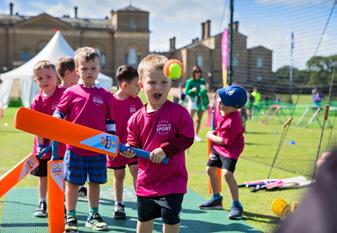
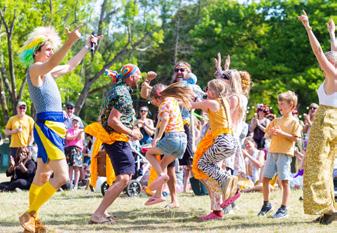
kids can freely explore. Highlights include Dragonfly Hill for lively performances and Leapfrog Lawns for crafts and games. www.south.elderflowerfields.co.uk
The Big Retreat Pembrokeshire Coast National Park, Wales 23-25 May
The festival celebrates wellbeing and adventure with yoga, fitness and live music. It offers diverse children’s activities, including storytelling, discos, water slides, circus toys and bushcraft workshops for survival skills and nature exploration. Families can enjoy a creative and inspirational atmosphere filled with arts, crafts, singing, dancing and wellbeing classes – an inclusive experience in which they can have fun, enjoy and learn together. www.thebigretreatfestival.com

Latitude Henham Park, Suffolk 24-27 July
Award-winning Latitude is among the biggest of the family-friendly festivals with a huge array of activities for both children and parents. It’s a proper pop festival in the beautiful grounds of Henham Park with a stunning Kids’ Area. Expect fire shows, pizza-making, traditional woodland crafts and exciting science experiments, a more relaxed but packed programme in the Enchanted Garden and an Inbetweeners Teen Area. www.latitudefestival.com
Camp Severn Kids Festival West Mid Showground, Shropshire 25-27 July
Camp Severn offers an all-inclusive adventure for children ages 3 to 13.

This family-friendly event is packed with interactive workshops, outdoor games and themed events such as Space Camp, with Star Wars characters, singing princesses and inflatables. The festival also features engaging science workshops, blending fun and education. With camping options available, families can immerse themselves in the festival atmosphere, enjoying a hassle-free experience where all activities are included in the ticket price. www.kids-events.co.uk
Festival of Sport Packington Estate, Warwickshire 1-4 August
The Festival of Sport at Packington Estate offers families an exciting weekend filled with diverse sports activities for children ages 5 to 17. Featuring expert coaching and interactions with sporting legends, kids can explore rugby, hockey, cricket and more. Set in a picturesque location, this festival provides a unique opportunity for children to learn, play and be inspired by sports heroes. www.festivalofsportuk.com
Camp Kindling Sevenoaks, Kent 15-18 August
A magical, intimate, safe and secure family retreat in an ancient forest, featuring over one hundred activities. Children can enjoy thrilling adventures like water slides, zip lines and rock climbing, while adults delight in live music, theatre and comedy performances. Pre-bookable activities ensure no lost time and there are no hidden costs. www.campkindling.co.uk

By Paul Dix
Ask your children what the rules are in your home and you may get a variety of strange responses: ‘Cleaning my room?’ or ‘Is it not calling Granny ‘skibidi bruv’ or even ‘There ARE rules?’ In other words, the rules in your head are likely to be very different from the ones in theirs.
Teaching your household’s rules once and never referring to them again by name is common. However, just because you’ve taught these rules doesn’t mean your child has learned them (ask any teacher).
With a lack of clarity around the boundaries, many children become focused on trying not to upset the adults. This encourages the wrong behaviours - sneakiness, secretiveness and trying to hide things. Nothing positive is learned here. It is difficult to have a trusting relationship if one side can’t be open.
Some homes have rules for every situation. For screens, for travelling on the bus, for where the toothpaste lives, for bedtime - then three new rules in the morning. There are so many rules that nobody can keep track of them. They are quickly forgotten and children don’t have the consistency they need.
Your child needs rules to feel safe. You need rules to stay sane. But you only need three and they must be simple. Three rules that can be used in a thousand different situations. Three pegs that you can constantly and consistently use to hang behaviour on; positive and negative.
Every time you talk to your child about their behaviour, refer to one of your rules; each time you celebrate fantastic behaviour, refer back to one of the rules.
I use Ready, Respectful, Safe. A lot of schools do the same. You might prefer Kind, Caring and Cooperative. The words that you choose are not magic; you just need single word rules that can easily be integrated into every conversation about behaviour.
Don’t be tempted to negotiate rules with your child: you are the adult so you get to decide the rules. A lengthy negotiation won’t give you better rules. It might just overcomplicate what needs to be perfectly simple.

Three rules can cover everything. There isn’t a behaviour that I have come across (and I have come across a few) that doesn’t fit into Ready, Respectful and Safe. Talk to your child about different situations where they will need to think about the rules.
Prepare them for activities by talking about the rules first; it can save a lot of time later on. ‘We are going to walk through this crowd. What do we need to think about using our Safe rule?
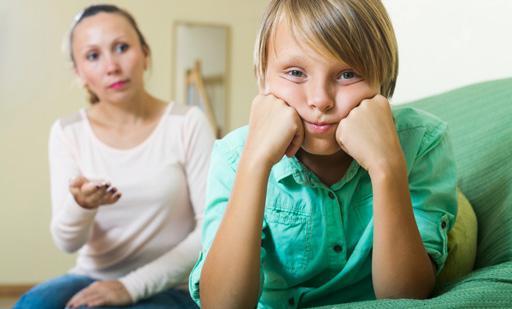
Now set about your work. Make sure your child knows what Safe means when crossing the road and what it means when they are online. Show them what Ready looks like in the morning before school and at night before bed. Teach them that Respect matters as much when talking to granny as it does to people you have only just met.
Celebrate their great moments with equal emphasis on the rules: ‘Love how safely you were carrying that,’ ‘Thank you for being ready. It makes everything so much easier’ and ‘I’ve noticed how respectful you have been talking to granny today. Also that you thanked her for the money.’
Three rules are a solid foundation on which to build a new approach to behaviour in your home. One that is consistently safe, with boundaries that are central to guiding your child and your response to their behaviour. With real clarity around expectations, the rules in their heads will be the same as in yours. Soon you won’t need to refer to the individual rules and it will simply be: ‘This is how we do it here.’ Then everything changes.
You might want to cover your fridge in groovy posters with the new rules, paint them as a bedroom wall mural or even tattoo them on yourself. Any of these would be most entertaining but won’t do anything to help your child know and understand them.
Instead of redecorating, simply make sure that the rules fall from the mouth of every adult, every time. When your child says to you: ‘ALL RIGHT, enough, I know the rules!!’ that is a good sign.
Paul Dix is a specialist in children’s behaviour and the author of When the Parents Change, Everything Changes: Seismic Shifts in Children’s Behaviour, available from www.bookshop. org

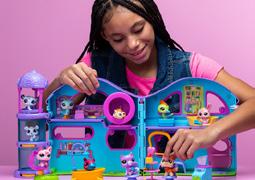
or apply


By Ellie Malt
Ah, winter. The season of... cabin fever? Yes, keeping children off screens is challenging. Well, challenge accepted! Read on for ten ways to keep them moving indoors!

Mission impossible
Place a prize in the middle of the room. Then tie string so it criss-crosses the room at different heights and angles: these are your invisible lasers. One child wears a blindfold. The second child instructs them on how to navigate the maze without touching the string to get the prize. They must return through the ‘lasers’ to win the reward.

Tabletop showdown
Got a kitchen table? You’ve got a ping pong table in the making! Grab some makeshift paddles (books work), a lightweight ball and let the games begin. You can use paper plates and a balloon for a slower version. You could also tape empty shoe boxes to the table ends to make goals and use straws to blow the balls.

Stairway cardio
If you have stairs, why not build some stamina and get a cardio workout going? Set challenges like ‘How many times can you go up and down in two minutes?’ or ‘Can you beat your time by the end of the week?’ Keep a chart and make it a challenge for the whole family. For older kids you could encourage them to do a sponsored or timed stair marathon.

Find the key
Hide clues around the house that lead to a key to access a final reward. Each clue can come with a mental puzzle or code to solve but also a physical challenge too e.g. ‘stand on one leg for ten seconds before winning the next clue.’ For older children, you may want to theme this as an escape room.
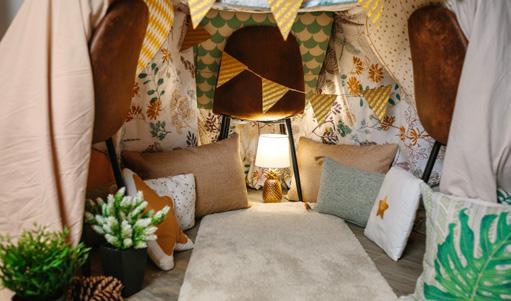
Blanket fort extravaganza
Let’s start with a classic: building a den. BUT we’re not talking about a tiny tent in the corner of the living room. Oh no. We’re going mega. Take every blanket, sheet and cushion you can find and transform your living room into a fortress. Once built, challenge your kids to make a pillow obstacle course inside!

Create an indoor agility course for either your children or pets. Using masking tape, you can create an agility ladder across the floor and a makeshift balance beam. Everyday objects can become a series of jumps. Boxes taped together make great tunnels. Let your kids complete the circuit and try to beat their personal best.

If you’ve got spare space, you can transform it into a temporary gym even without full-size equipment. For example, you can buy a small stand for your bike that turns it into a cycling machine. Look for pull up bars that fit doorways. One easy way to make a DIY rowing machine is to use a resistance band attached to an upright. Sitting on a skateboard or similar, you can push back and forth with the legs, pulling with the arms. Finally, you can create stations for exercises like jumping jacks and push-ups.

across the living room
Everyone has ten minutes to find as many boxes and bits of junk as possible. Then they have one hour to build a vehicle. Each child will get to test their creation by attaching it to their body and taking part in a kneeling race. They must stay inside the vehicle and cannot hold it with hands, arms or feet. Depending on their age, you could add an obstacle or two. Points can be applied for style, originality, moving parts etc.